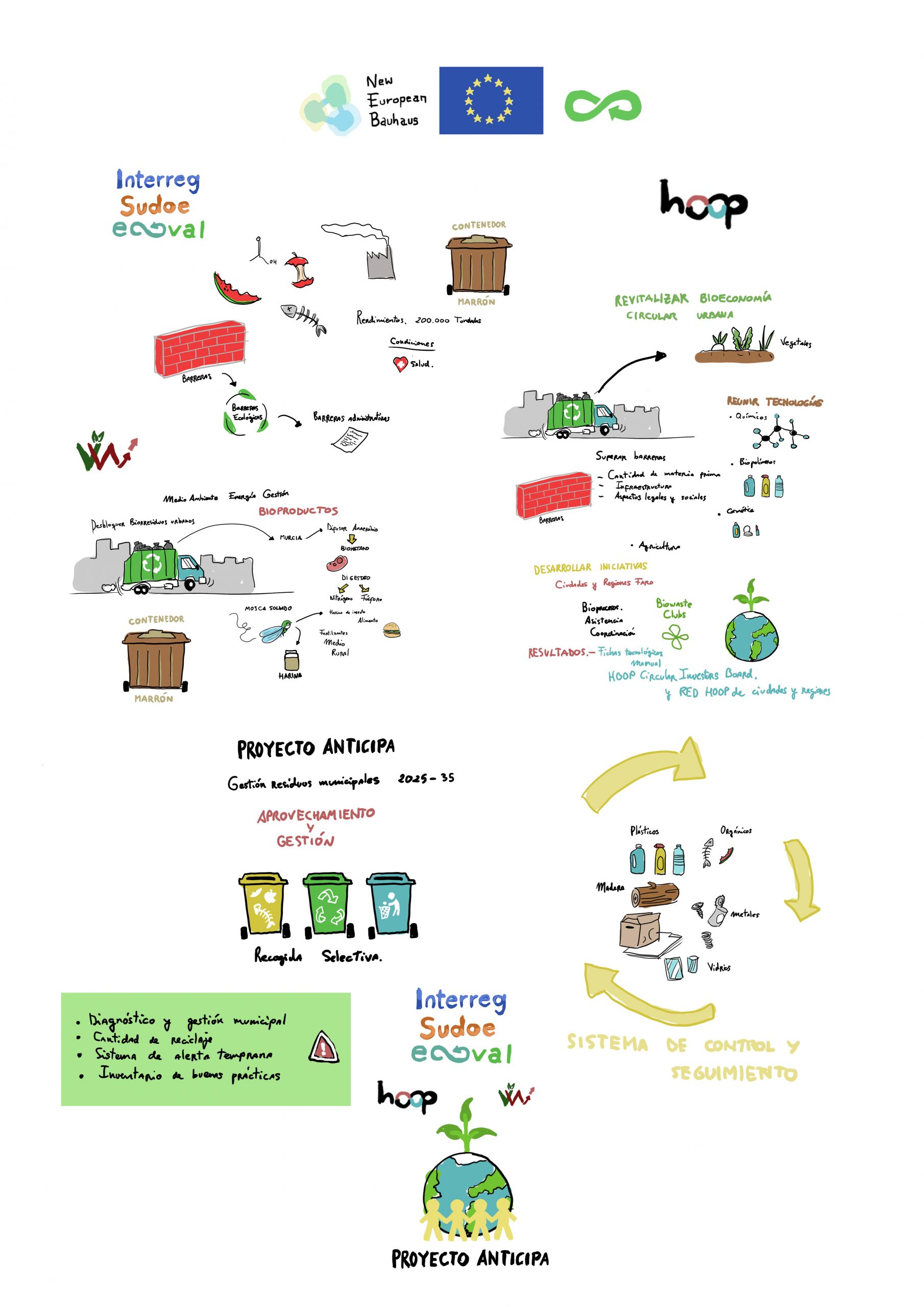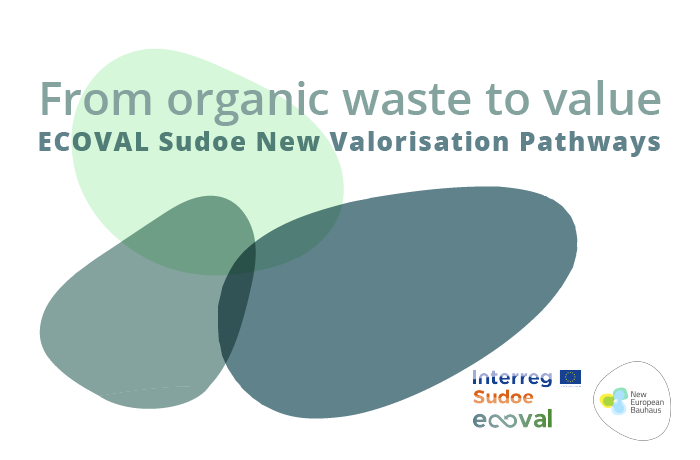The ECOVAL Sudoe project is organising an official side event for the New European Bauhaus Festival 2022. It will take place on 10 June at 10:00hrs (GMT+1) and is entitled “From waste to resources: New ways to valorise organic waste“. It will provide an insight into ECOVAL Sudoe’s approach to the management of organic waste and urban sludge, as well as other related projects with which to build bridges. It will be held online, subject to registration.
The New European Bauhaus (NEB) expresses the EU’s ambition to create beautiful, sustainable and inclusive places, products and lifestyles. It promotes a new way of life where sustainability goes hand in hand with style, thus accelerating the ecological transition in various sectors of our economy. From 9 to 12 June, the festival will be held in Brussels, but also online, under the motto: Together for a beautiful and sustainable future. It combines beauty with sustainability and inclusion, along the lines of the Bauhaus. The festival has three distinct stages: the fair, live innovation exhibitions, the forum, debates on the key themes of the NEB, and the festival, which includes all kinds of activities and events such as the one organised by ECOVAL.
“From waste to resources: New ways of valorisation of organic waste” will start with a virtual visit to the Ecoval Sudoe pilot plant, where we will be able to see the process of converting organic waste and urban sludge into volatile fatty acids (VFAs). The next half hour will be followed by the section “Drawing value projects“, in which the ECOVAL project will be compared with other interesting projects that aim to tackle the same problem, but through different solutions. These are ValueWaste, which seeks to convert waste into useful bioproducts for the food or fertiliser industry, the HOOP Project, a HUB of circular platforms to promote investment in the recovery of urban biowaste and wastewater, and the ANTICIPA project, a system for monitoring and alerts on municipal waste management.
All this will be done at the same time as an illustrator tries to express graphically, live, the key points of each project and allows the public to visualise the advances that each proposal represents for our cities. A talk on the role of organic waste and sludge in the circular economy will occupy the next half hour. Finally, there will be an open slot for public participation until 12:30hrs, either through the resolution of possible doubts they may have, or through questionnaires and games developed by the projects. See the full programme here.
A healthier planet, without overburdened landfills.
The event will therefore cover the impact of organic waste and its possible solutions, both from a technical perspective, by learning about the technologies proposed by the participating projects, and from a social and legal perspective, by considering the possible barriers to overcome. In aesthetic terms, the correct separation of waste promoted by the event allows for a healthier planet, without overloaded landfills. Turning waste into valuable products allows us to benefit from the value of those products and also to achieve a less polluted, more liveable planet. The Festival provides the opportunity to share these ideas with a wide range of people, communities and organisations, increasing their visibility and impact.



